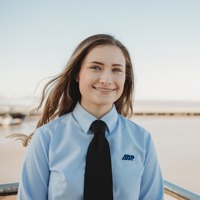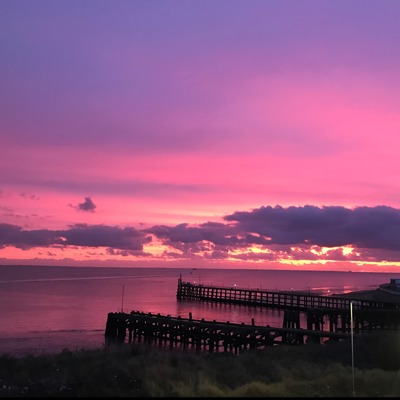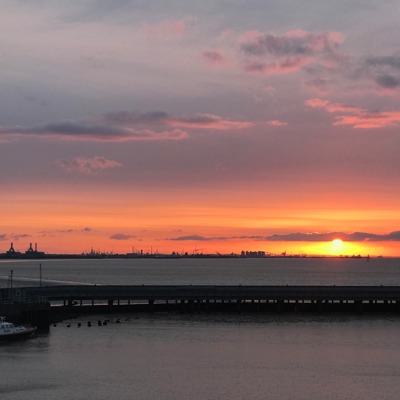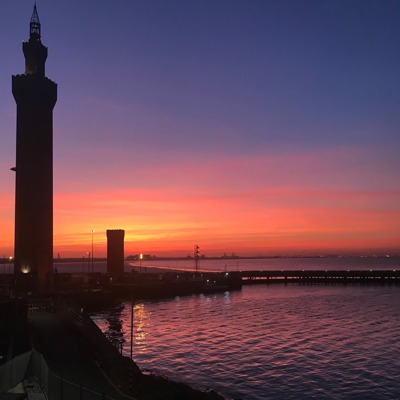
Charlotte Gifford
Marine Information Officer at Associated British Ports
Nothing is impossible, the word itself says, ‘I’m possible!' — Audrey Hepburn
About Charlotte...
Who am I?
"I think that my personality types are a strong match for my role; as a Marine Information Officer I spend a lot of time relaying important information to a variety of people, so having good communication skills is vital. The role requires me to do a lot of night-time work and this is when people skills are particularly tested – trying to coordinate and motivate people who are tired can be a challenge as they’re more likely to have slower reactions or require greater encouragement to react positively. A bit of patience and awareness of their situation goes a long way when instructing challenging people, but it is still important to ensure that everyone fully understands their responsibility to deliver and complete the task at hand. I enjoy coordinating people so that everyone is happy to work together, because if people are upbeat then the job will always run more smoothly. As my role requires me to deal with many different people I don’t always have a lot of time to be able to encourage them, so making a good first impression when I meet them really counts. As with most roles in the shipping industry, flexibility in working hours and attitude is required from all parties. There are so many variables that impact our work that it is important to be able to think outside the box to come up with solutions to all manner of different situations, whether working independently or as part of a team. I find this to be one of the most exciting aspects of Shipping; there are always new, interesting challenges to deal with regardless of whether you are in an office on your own or on a working quayside with a variety of different services going on around you, you are an important part of a global enterprise: international trade! However, being part of such a crucial operation demands that you must be confident in setting and achieving deadlines; we must always ensure work is undertaken in an efficient, organised manner to be time and cost effective."
What do I do?
"As a Marine Information Officer I am the communicator between the Harbour Authority and the local ship’s agents. For explanation, a ship’s agent acts on behalf of a vessel to arrange and be responsible for all of the requirements that the ship will need while in port. The Harbour Authority is legally responsible for operating and managing all river traffic to ensure the safe navigation of all vessels transiting the river – in my case, the River Humber, River Trent and River Ouse. As part of this obligation to ensure safe navigation, the Harbour Authority is required to provide a marine pilotage service, whereby a qualified Master Mariner with great knowledge and experience of the local waterways will be required by law to go onboard vessels and advise the ship’s Captain on how to navigate safely. Pilotage is one of the services that a ship’s agent is responsible for arranging, and as such they will communicate their requirements to me and I will allocate suitably qualified Marine Pilots on behalf of the Harbour Master. Once an agent has booked a pilot, it is also my responsibility to collate all of the vessel movements into our computer database. From this, we can determine which pilots we will allocate to different vessels depending on the size and navigational requirements of the ship, as well as decide what time we will muster the Pilot to provide the service. Mustering the Pilots is the single most important part of my role because if I don’t notify them in due time that they have been allocated for a particular job, they won’t be able to provide the service! The river operates 24 hours a day, 7 days a week, 365 days a year and we work hard to maintain that complete time coverage. We work a combination of 12 and 9 hours shifts to ensure full 24 hour coverage is provided every single day of the year. Working long hours – particularly overnight – can be tiring, but there is generous off-duty time to recover and a competitive salary, starting at £21,000."
How did I get here?
"I started in the shipping industry when I did work experience with a ship’s agency firm during my year 10 of secondary school. After just 2 weeks I knew it was the industry for me, so I worked a summer job in the Company’s accounts department during the school holidays of years 10 and 11. I started working for the Company on a full time basis once I turned 17 and had passed my driving test, working on a three year training programme to give me experience in the accounts department, the Research Team where I assisted in the generation and distribution of specialised intelligence reports, before transferring to the Customs Clearance team, which made for great training before finally moving into the Agency Operations team to learn and become a qualified Ship’s Agent. Once qualified, I then spent a further 2 years covering a variety of operations around the UK as well as remotely coordinating overseas operations via the global Hub-Agency team. After 5 years with the Company the opportunity arose to join Associated British Ports to use the experience I had gained to further develop my shipping career."
The life I live
"A natural benefit of working on the River Humber is living on the coast. I was born and raised in Grimsby so have been able to spend much of my free time at the beach. As a child it was amazing to live a few miles away from the sandy beach, slot machines and sweet stalls. Now I’m in my 20s and it’s still a joy! While I do still love the arcades, these days I like to attend exercise classes at the beach. It’s a great way to get outdoors, and you can see all the commercial vessels transiting the river while you exercise – you don’t need to be this geeky to be a good Marine Information Officer but it helps! I also really enjoy cooking and find it a good way to de-stress after a busy day; you get to chill out and have some delicious food at the end of it which is always a winner. I think it’s really important to know how best to spend your down-time for yourself, though this will be different for everyone. Whether it’s yoga, dancing, seeing friends or just sitting and watching a movie, knowing how to recharge and keep a smile on your face is absolutely crucial in such a busy world. And just because someone tells you it’s good for you doesn’t mean it is – I’ve tried running and unless it’s to or from something that my life depends on, I think I’d just prefer a steady stroll thank you…"
My typical day
"My responsibilities slightly vary depending on whether I’m working a day or night shift, but all shifts will start with a formal handover from the off-going team. Handovers are really important for the people starting their shift, as they need to obtain a clear picture of everything that has happened over the last 12 hours in a very short and concise manner. I know that at the end of my shift I will be delivering a handover myself, so I’ll always make notes throughout the day of anything I think the next shift team will need to know. I spend time responding to emails as well as focusing on our integrated database PAVIS – Ports and Vessel Information System. This database holds all information of the planned vessel movements on the river. The system is used by many different departments within the company, such as Port Operations and Accounts, so it’s crucial that we keep everything as up to date as we can so that those in planning roles are making informed decisions and those in the accounts team can be confident they are invoicing customers correctly for the services provided. I will also be calling Marine Pilots to work at the designated time as well as coordinating their transport to and from the vessels. This will be a combination of either launch boat to get offshore, or by moving around our fleet of cars for shoreside transportation. In addition to this, we also broadcast a radio service every 90 minutes for the pilots to listen to. This enables the pilots to determine which job they are likely to get and so can plan their day – or sleep – accordingly. In addition to all of this, if I’m working a night shift I will also be responsible for preparing a number of reports. Once the clock has struck midnight, we can gather all the information of everything that has happened the previous 24 hours and put it into a report so that our management team can have a concise overview of the previous day’s activity."
My qualifications
"As I left school before achieving my A-Levels, I knew it was very important that I completed relevant qualifications relating to my work. I enrolled with the Institute of Chartered Shipbrokers (ICS) when I was in my previous role and I successfully passed a Foundation Diploma in Port Agency. I am now studying for an Advanced Diploma in Port and Terminal Management. Each diploma is made up of 2 essay based examinations, so at this stage I have already taken 2 and I’m scheduled to sit my next 2 this year. If I pass (fingers crossed!) then I will take 3 further Professional Qualifying Exams and then I will have successfully obtained a degree-equivalent qualification. Once I’ve passed all 7 exams, I can apply to become a Member of the ICS. It is by no means easy to study alongside a full time job, but it has been so rewarding to have started working young and gained my qualifications in parallel with my job. I feel that it has offered personal growth and support that I may not have achieved otherwise. I would never discourage anyone from going to university, but at the time it simply wasn’t suitable for my personal circumstances. I hope that my vocational studies can illustrate that while a university degree is a great commendation, there are so many alternative career routes out there."
Charlotte's Photos






